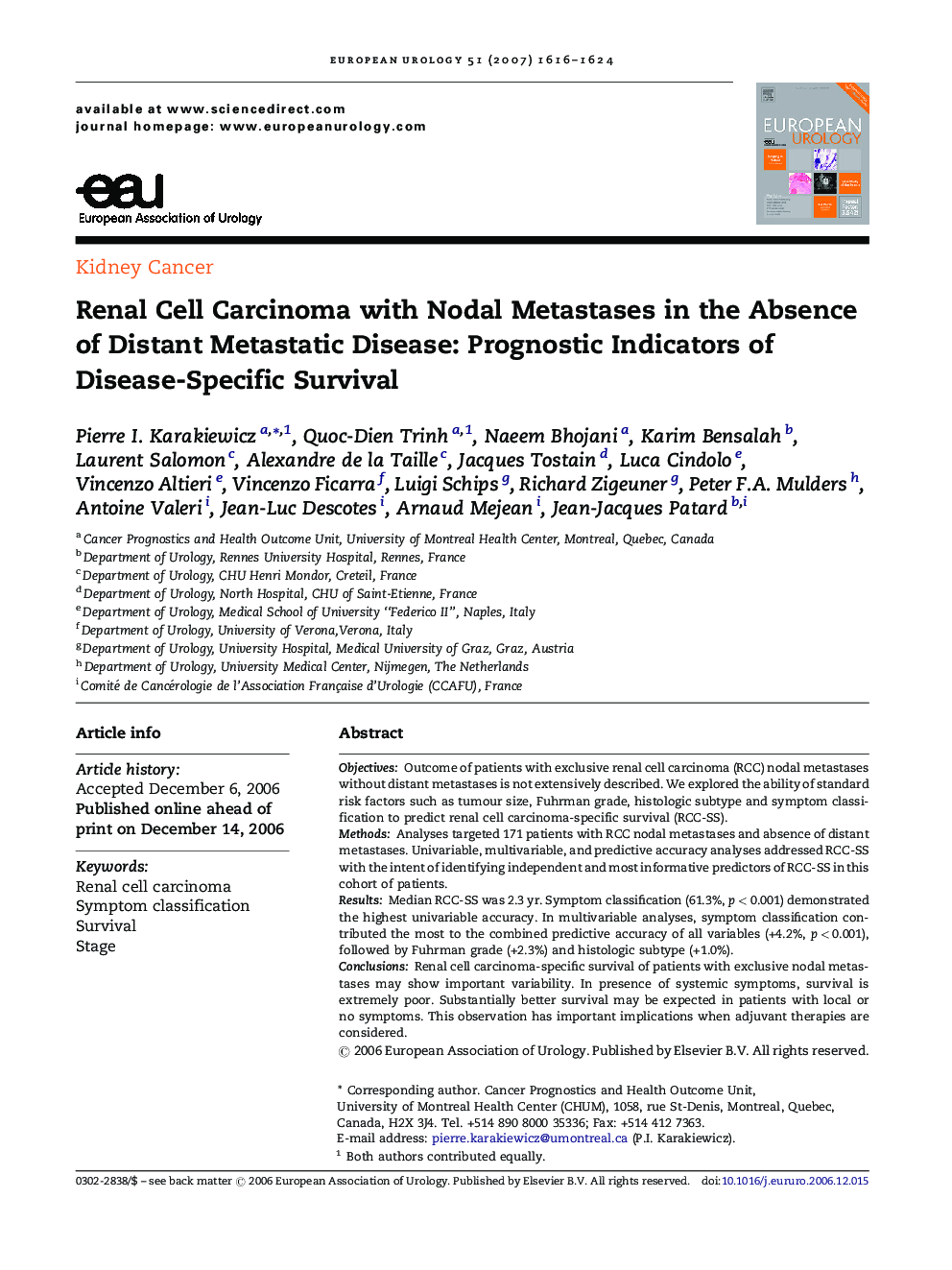| Article ID | Journal | Published Year | Pages | File Type |
|---|---|---|---|---|
| 3928495 | European Urology | 2007 | 9 Pages |
ObjectivesOutcome of patients with exclusive renal cell carcinoma (RCC) nodal metastases without distant metastases is not extensively described. We explored the ability of standard risk factors such as tumour size, Fuhrman grade, histologic subtype and symptom classification to predict renal cell carcinoma-specific survival (RCC-SS).MethodsAnalyses targeted 171 patients with RCC nodal metastases and absence of distant metastases. Univariable, multivariable, and predictive accuracy analyses addressed RCC-SS with the intent of identifying independent and most informative predictors of RCC-SS in this cohort of patients.ResultsMedian RCC-SS was 2.3 yr. Symptom classification (61.3%, p < 0.001) demonstrated the highest univariable accuracy. In multivariable analyses, symptom classification contributed the most to the combined predictive accuracy of all variables (+4.2%, p < 0.001), followed by Fuhrman grade (+2.3%) and histologic subtype (+1.0%).ConclusionsRenal cell carcinoma-specific survival of patients with exclusive nodal metastases may show important variability. In presence of systemic symptoms, survival is extremely poor. Substantially better survival may be expected in patients with local or no symptoms. This observation has important implications when adjuvant therapies are considered.
